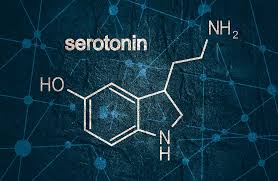
Breaking News
 Creating the First Synthetic Human D.N.A From Scratch
Creating the First Synthetic Human D.N.A From Scratch
 Texas Ready for $10M Bitcoin Purchase After Governor Signs Bill for State Reserve
Texas Ready for $10M Bitcoin Purchase After Governor Signs Bill for State Reserve
 How do you feel about this use of AI
How do you feel about this use of AI
 Big Tech Executives Welcomed as Army Colonels, New Government AI Project Leaked
Big Tech Executives Welcomed as Army Colonels, New Government AI Project Leaked
Top Tech News
 xAI Grok 3.5 Renamed Grok 4 and Has Specialized Coding Model
xAI Grok 3.5 Renamed Grok 4 and Has Specialized Coding Model
 AI goes full HAL: Blackmail, espionage, and murder to avoid shutdown
AI goes full HAL: Blackmail, espionage, and murder to avoid shutdown
 BREAKING UPDATE Neuralink and Optimus
BREAKING UPDATE Neuralink and Optimus
 1900 Scientists Say 'Climate Change Not Caused By CO2' – The Real Environment Movement...
1900 Scientists Say 'Climate Change Not Caused By CO2' – The Real Environment Movement...
 New molecule could create stamp-sized drives with 100x more storage
New molecule could create stamp-sized drives with 100x more storage
 DARPA fast tracks flight tests for new military drones
DARPA fast tracks flight tests for new military drones
 ChatGPT May Be Eroding Critical Thinking Skills, According to a New MIT Study
ChatGPT May Be Eroding Critical Thinking Skills, According to a New MIT Study
 How China Won the Thorium Nuclear Energy Race
How China Won the Thorium Nuclear Energy Race
 Sunlight-Powered Catalyst Supercharges Green Hydrogen Production by 800%
Sunlight-Powered Catalyst Supercharges Green Hydrogen Production by 800%
The Great Serotonin Scam: How Drug Companies Sold America a "Chemical Imbalance"...

Researchers have been warning for 20 years that the most profitable psychiatric drugs in history are marketed on claims that have no scientific backing.
If you've ever seen a commercial for Zoloft, Paxil, or Prozac, you've probably heard the pitch: depression is caused by a "chemical imbalance" in your brain, and these drugs work by "correcting" that imbalance. This was the pivot from the prior "serotonin deficiency" marketing slogan that was too risky to continue pushing due to the severe lack of credible evidence to support it.
As with many other fraudulent claims used to push chemicals to unsuspecting civilians (think cholesterol and heart disease, for example), consciousness researchers voice concerns that largely go unnoticed.
An example of this was a comprehensive 2005 analysis published in PLoS Medicine that exposed one of the most successful marketing campaigns in pharmaceutical history. Researchers Jeffrey Lacasse and Jonathan Leo systematically examined the scientific evidence behind the "serotonin hypothesis" of depression and compared it to what drug companies were telling consumers. What they found should concern anyone who's been prescribed an antidepressant or knows someone who has.
Study Findings
The researchers discovered a shocking disconnect between pharmaceutical marketing and actual science. Despite decades of research and billions in funding, scientists have never found evidence that depression is caused by low serotonin levels. The study authors compiled quotes from leading neuroscientists and psychiatrists – including many who support antidepressant use – all stating the same thing: there's no proof of serotonin deficiency in depression.
One Stanford psychiatrist who won awards for serotonin research put it bluntly: "I never saw any convincing evidence that any psychiatric disorder, including depression, results from a deficiency of brain serotonin."
The research reveals multiple failed attempts to prove the serotonin theory:
Studies comparing serotonin levels in depressed versus healthy people produced inconsistent, contradictory results
Experiments that deliberately lowered serotonin levels in volunteers didn't cause depression
Massive doses of serotonin-boosting supplements failed to cure depression

 He 3D Printed a Whole House
He 3D Printed a Whole House

